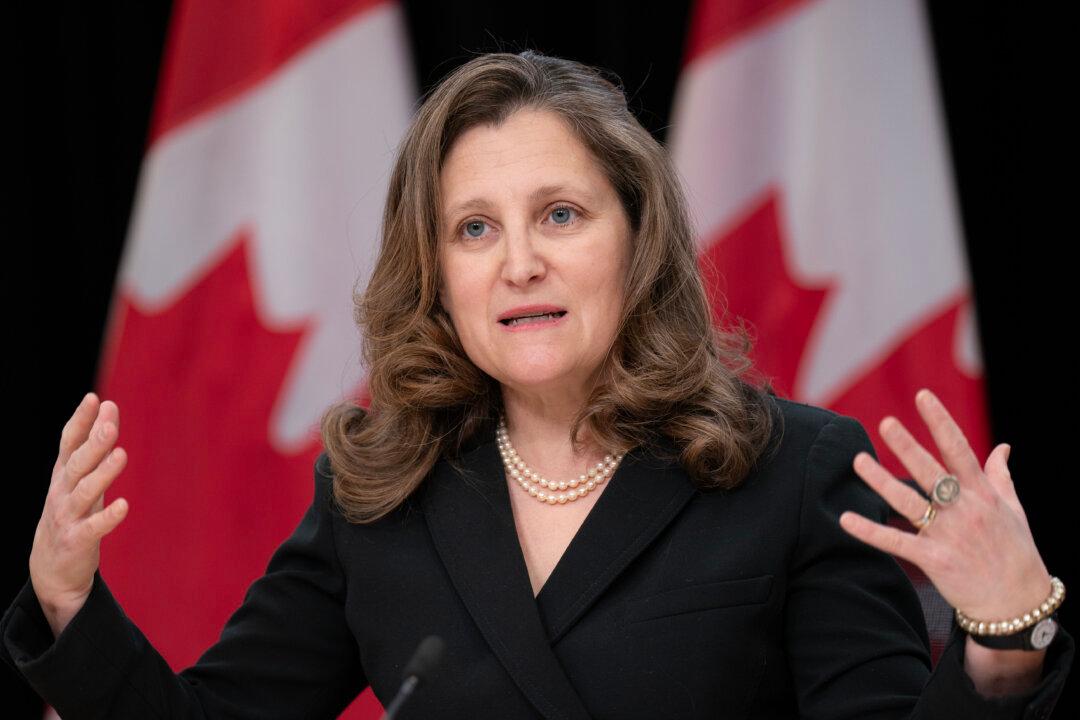Deputy Prime Minister and Minister of Finance Chrystia Freeland tabled a ways and means motion in the House of Commons on June 10 as part of the Liberal government’s upcoming legislation to increase the capital gains tax.
Ms. Freeland said the changes to the tax regime, which will be effective June 25, is a more “fiscally responsible” approach than the government taking on more debt.





